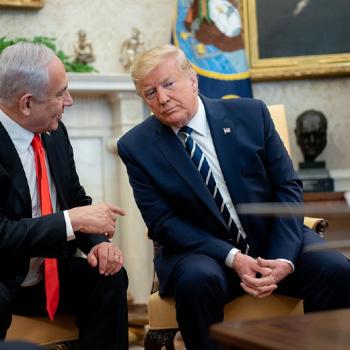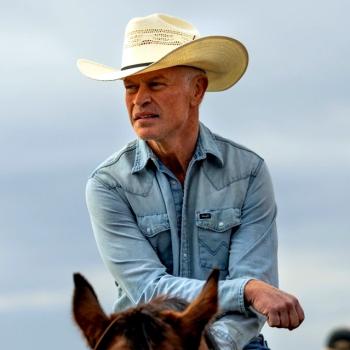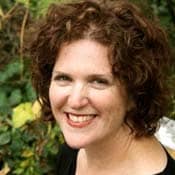 In the U.S., many people—particularly middle to upper class white people—live with a façade of safety. Our individualized lives, combined with a vast geographical landscape, mean that a large percentage of Americans often go throughout a day without seeing or talking with anyone in a different economic or political or social state other from their own. These isolated realities are reinforced in small communities that feel really big when they are all that is known. And because of this, we often feel safe from terror, safe from natural disaster, safe from the unknown.
In the U.S., many people—particularly middle to upper class white people—live with a façade of safety. Our individualized lives, combined with a vast geographical landscape, mean that a large percentage of Americans often go throughout a day without seeing or talking with anyone in a different economic or political or social state other from their own. These isolated realities are reinforced in small communities that feel really big when they are all that is known. And because of this, we often feel safe from terror, safe from natural disaster, safe from the unknown.
Whenever there is a tragedy, as with this week's shooting in Tucson, it comes as a shock. Not that violence isn't always a shock, but it is especially a shock to many Americans. We can control so much of our lives, ensure so much of our safety, protect our children to such an extent, that it is a shock when all of those measures weren't enough somewhere. Because if it's not enough at a neighborhood Safeway in Tucson, Arizona, it might not be enough at my grocery store or at my children's elementary school or in my home.
I bring this up because I think a lot of people are understandably scared and unsure about how to handle the events in Tucson. Our fear reveals a need that pastors have an opportunity to address even when national tragedy isn't at the forefront of our minds. Through spiritual formation, mission, and global conversation, we can help congregations be prepared to respond to the struggles of life.
As people grow spiritually, they are drawn beyond the "circumference" of their lives, as Richard Rohr calls it, into the center where unity with God is found. This center then begins to transform the circumference. We move from fear into love and we take love with us into our fear. We begin to understand that our natural anxieties are within the reach of a God of love, not apart from God. And so when tragedy strikes, we are more able to see our fear and shock included in the realm of God's love.
Mission moves us beyond what is familiar into action that meets the world's need with our own selves. When we authentically engage in mission, we become, as Bruce Cockburn sings, "lovers in a dangerous time." It was time spent in places like the streets of South Central Los Angeles, living in Budapest, Hungary, and a recent family trip to the Philippines that moved me further beyond concern for only those closest to me to concern for justice for the whole world. Whether it is a drive across town or a trip around the world, mission has the potential to increase our hope and broaden our circle of concern.
Lastly, churches can offer exposure to new voices. My church in Berkeley, California has a yearly Global Church Conference where leaders from primarily the Global South come to speak about theology and justice. This experience certainly increases action and engagement, but I think it also increases faith. When you hear the stories and see the faces of those who have lived through genocide or are working with AIDS in Africa or are providing care to former child soldiers in Uganda, it increases the conviction that even when life is at its worst, God is still present offering hope, peace, and strength. We have to intentionally cultivate this kind of engagement in our American lives because it is quite easy to live an entire life isolated from it.
I do not know if our country will become more or less violent in the years to come. But I believe churches are places where we can move beyond some of the isolation that exists in the United States to a love that embraces those different from ourselves, to courage that refuses to live exclusively in self-protectiveness, and to justice that extends itself in passionate, daring response—in other words, to live lives worthy of the gospel. And that kind of transformation will bring healing beyond the walls of the church and into the world.
1/12/2011 5:00:00 AM





